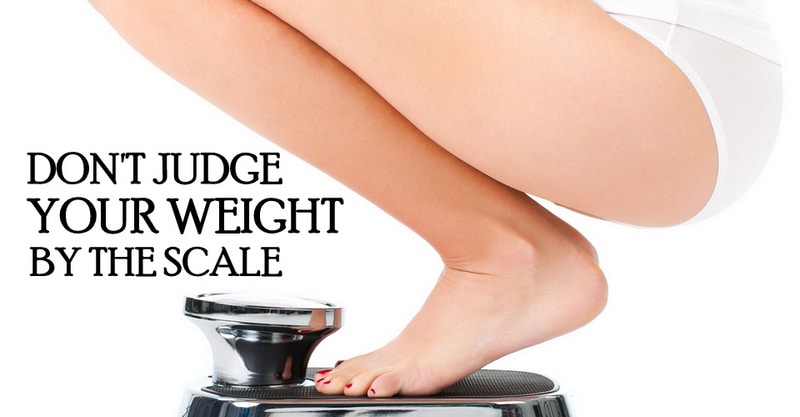We live in a society that constantly begs for results – visible, tangible results. No one wants to hear about the journey as much as they want to see what you’ve actually achieved.
But as we move deeper into our lives, we learn just how much of life is embedded in the journey, not the destination. How much growth actually happens inside of you long before you can see it in reality – long before you can show it to anyone.
It’s a truth that exists in every journey, be it one of emotional healing, academic pursuit, artistic development, or health and weight loss. Indeed, even if the number on the scale isn’t budging, you may very well be deep in progress towards your ideal weight and health. So don’t judge your weight by the scale. And here’s why:

Several blood tests have shown that when a dieter reaches a plateau, the body is working hard at re-balancing certain elements that have been impacted adversely by the weight loss, even when following a healthy weight-loss plan. Indeed, as we lose weight, hormonal levels can change, as will most certainly potassium levels and in general, fluid levels. They need to adjust in order to find their new equilibrium. Often, when we think the body is resisting change it is, in fact, working hard at finding its perfect state of balance where all body functions are at their optimum.
2. Measure your body fat, look at yourself in the mirror, and try on your old pants.
It is possible (and likely) that a higher number on the scale does not represent fat mass, but rather muscle mass. Indeed, if you have increased the amount of physical activity in your daily life, you will have increased your muscle mass. Muscle weighs twice as much as fat – so the number on the scale might look greater – but when you look in the mirror, you actually see a shapely figure and a firm, toned body. Therefore, weighing oneself is just part of the equation in gauging weight loss success: our body fat content is way more accurate to define how much progress we have made, and the tightness or looseness of our old pants is also a great indicator!
3. A scale that isn’t budging may have nothing to do with weight loss.
The number on your scale refusing to budge could be reflecting other elements such as water retention or constipation. Note that water retention is especially true just before and during menstruation when it is not uncommon to weigh even 2 lbs more than usual. And as far as a temporary state of constipation goes…did you know that your intestines can hold up to 8 lbs of waste?!
4. Some of the most significant signs of improved health show up on your body, not the scale.
More glowing skin and higher energy levels are two significant indicators of improved health. Why so? Our bodies are constantly absorbing toxins from three major sources: food (excessive protein, deficient fiber, too much saturated fat, sugar, sodium), stress (triggers higher cortisol levels which leads to higher blood sugar levels), and external pollutants in our environment. Toxins make us feel sluggish and are reflected in our skin (dull complexion and congested pores) and low energy levels. As you eat healthier and increase physical activity, you assist your body in eliminating toxins which results in higher energy levels and a glowing, peachy complexion.
Want to learn more? Join me on LeBootCamp for personal guided health & weight loss coaching!
To your health,
Valerie Orsoni
Your LeBootCamp Coach
Tags: coach coaching diet lebootcamp lose weight plateau scale toxins Valerie Orsoni weight weight loss

























Leave a Reply